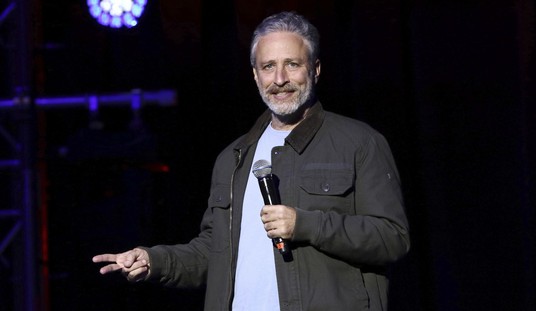Millions of people want to come to America. Actually, it’s tens of millions or perhaps hundreds of millions. Some Americans believe our borders should be open — that everyone has a “right” to live in the United States. That seems to me both mistaken and impractical.
But I also disagree with those who would shut the doors to all refugees, asylum seekers and immigrants. Such people have enriched and enlivened the United States in the past and can do so long into the future.
What lies between these two extremes is prioritization, considering what’s best for America and what most Americans want, and how many people from various corners of the world can be successfully welcomed and integrated into a modern welfare state, one that continues to add costly entitlements. Humanitarian concerns need to be taken into account, too, because most Americans are humanitarians.
What seems obvious to me is who deserves to be at the front of the line: those who have sided with America and worked for America and whose lives are now imperiled as a result. There is a special visa program for foreign interpreters who served with the U.S. military, the State Department and other government agencies in such war zones as Afghanistan and Iraq. It expires on Oct. 1.
It should have been extended earlier this year but wasn’t, reportedly for reasons of politics as much as policy. According to The Wall Street Journal, Republicans in Congress are mostly to blame, but President Obama and other executive branch leaders have made little effort to argue for the extension.
Recommended
That argument is moral, strategic and simple: If we turn our backs on those who have risked their lives — and those of their families — to befriend and assist us, why would anyone befriend and assist us in the future?
And let me take a moment to stress how shameful it is that Shakil Afridi, the Pakistani doctor who helped the CIA confirm Osama bin Laden’s whereabouts, is still rotting in a Pakistani prison. The Obama administration claims it practices “smart diplomacy.” How much diplomatic I.Q. is required to communicate that so long as Dr. Afridi is incarcerated, we will conclude that Pakistan is not a reliable ally in the fight against al Qaeda — a conclusion that must carry serious consequences?
Also a priority: refugees fleeing genocide. Despite wars, conquests and rule by despots over millennia, minority religious communities have managed to survive in the Middle East. In this generation, however, they may be exterminated forever from many Muslim-majority countries.
Both houses of Congress have recognized that genocide is taking place in Syria and Iraq, and Secretary of State John Kerry, speaking for the Obama administration, declared in March that “Yazidis, Christians, and Shia Muslims” are among the minorities now being targeted. He added that what the Islamic State “wants to erase, we must preserve.” (Still waiting to hear how you propose to do that, Mr. Secretary.)
Christians are the largest non-Muslim group in Syria, yet of the Syrian refugees accepted into the United States to date, only “56 are Christian,” the Council on Foreign Relations’ Elliott Abrams wrote on his blog earlier this month. “Not 56 percent; 56 total, out of 10,801. That is to say, one half of one percent.”
Christians reportedly avoid the U.N. refugee camps in Jordan because of the threats posed by Islamic State infiltrators and criminal gangs. Sunni refugees also can be hostile.
Nina Shea of the Hudson Institute’s Center for Religious Freedom has been following these issues longer and more intensively than anyone else I know. She terms what’s going on “de facto discrimination and a gross injustice.” Syrian Christians, she told me, have been “abandoned by the West and betrayed by the U.N.”
It’s also a fact that the Islamic State and al Qaeda are not equal opportunity employers. That means there will be no jihadi terrorists among Christian or other non-Muslim refugees. How difficult is it to confirm that refugees who claim to be Christians are telling the truth? “Going through bishops, an individual’s local parish priest is easy to identify,” Ms. Shea told me. “That and baptismal records, knowledge of Aramaic, etc., make it easier to identify Christians.”
The majority of Sunni Muslims who reject the Islamic State’s theology-ideology also are suffering and vulnerable. I understand why so many would like to come to America or Europe. (I don’t understand why most of the 22 members of the Arab League and 56 member states of the Organization of Islamic Cooperation are doing so little for them.)
But the remedy for the pathologies afflicting the Middle East cannot be to export all the good people to the West, leaving those lands to the barbarians in the hope that they will eventually burn themselves out — with minimal harm to us in the meantime.
Some members of Congress do not want to remain bystanders to genocide. Sen. Tom Cotton, Arkansas Republican, has introduced the Religious Persecution Relief Act, which would grant Syrian religious minorities fleeing persecution priority status and allow them to circumvent the U.N.
Reps, Chris Smith, New Jersey Republican, and Anna Eshoo, California Democrat, have introduced the Iraq and Syria Genocide Relief and Accountability Act, which would provide “relief for victims of genocide, crimes against humanity and war crimes in Iraq and Syria.” For either bill to pass this year will require some heavy lifting.
Not long ago, we seemed to understand why genocide was uniquely evil. We vowed, “Never again.” Now many people are saying “Never mind.” They either can’t be bothered or, having embraced moral equivalence, equate prioritization of genocide victims with discrimination against other groups. That is confused thinking. But we live in confusing times.


